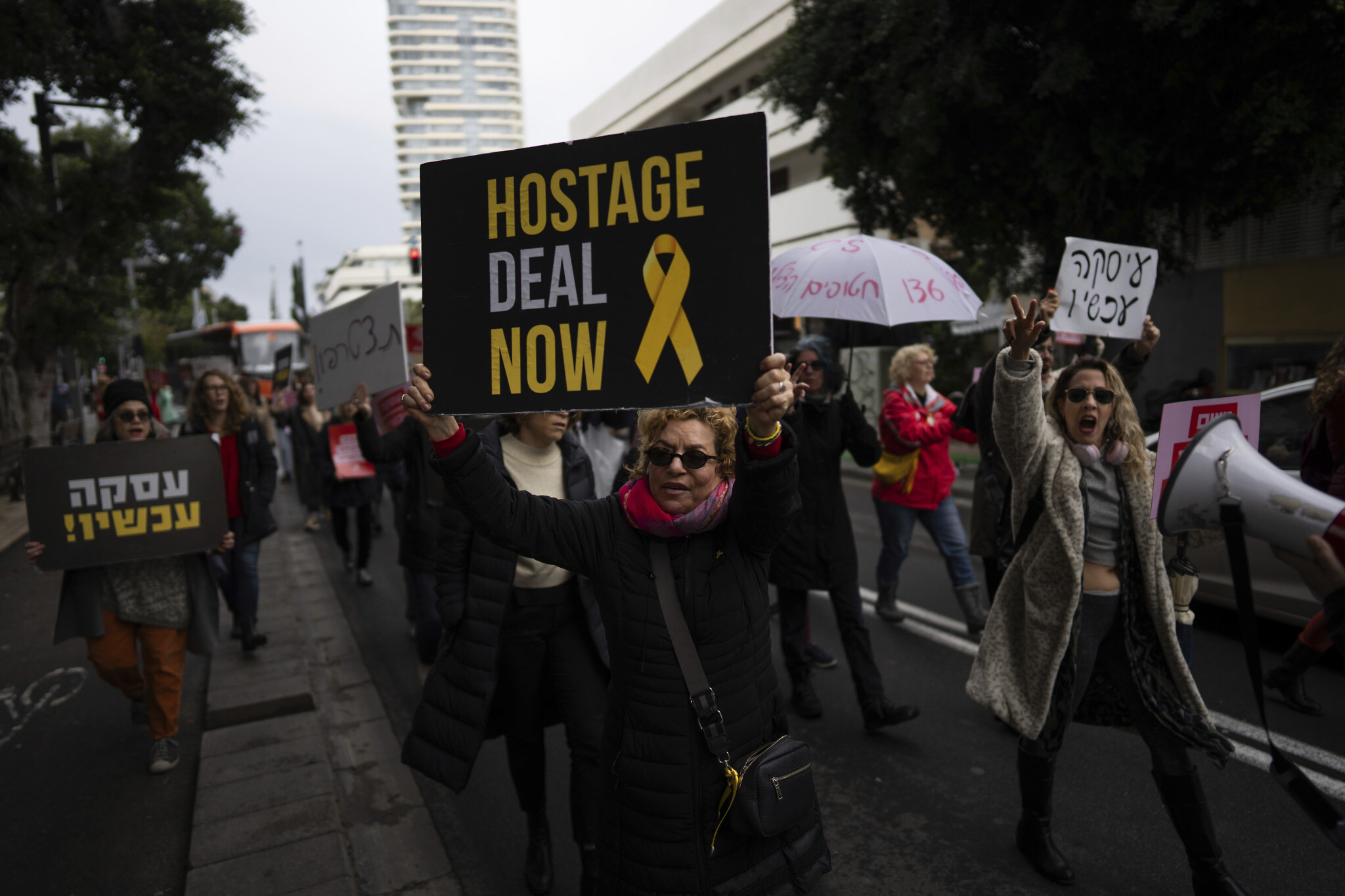



British Foreign Secretary David Cameron said Friday that Prime Minister Benjamin Netanyahu has “not ruled out comprehensively a two-state solution,” after meeting the premier during his visit to Israel in January.
The Israel-Hamas war has put renewed focus on a two-state solution to the Israeli-Palestinian conflict, and is still seen by many countries — including the United States — as the path to peace even though the negotiating process has been moribund for years.
Cameron was in Israel to discuss details of a potential deal to free hostages held by Hamas. He also stressed the need to move toward a sustainable ceasefire in meetings with Netanyahu and Foreign Minister Israel Katz.
“My message to him was start talking about the things that a Palestinian state could be rather than the things it can’t be. So that’s what we should be working towards,” he told Lebanese broadcaster LBCI.
In recent weeks, Netanyahu has drawn global condemnation — and defied the US, its closest ally — by ostensibly rejecting calls for a Palestinian state.
Netanyahu’s office said last month that Israel “must retain security control over Gaza,” even after “Hamas is destroyed,” days after the prime minister had rejected Palestinian sovereignty over the West Bank and proclaimed Israel’s need to have “security control over all the territory west of the Jordan [River].”
Netanyahu appears to have been careful, though, not to categorically reject all forms of Palestinian statehood.
Cameron has said part of British policy is to say there will be a time when Britain would look to recognize a Palestinian state, including at the United Nations, as a way to apply pressure on Israel to accept a two-state solution.
“That can’t be at the start of the process. The process needs to get going. But it doesn’t have to be at the end of the process,” he told LBCI.
Cameron last month said Palestinians in the West Bank and Gaza Strip must be given “the political perspective of a credible route to a Palestinian state and a new future” and this should be irreversible.
War erupted when Hamas fighters stormed across the border fence into Israel on October 7, murdering 1,200 people, mostly civilians, and kidnapping 253 hostages to Gaza.
The Hamas-run health ministry in Gaza says at least 27,238 Palestinians have been killed and 66,452 have been wounded in the Israeli offensive, aimed at eliminating the terror group. The figures are unverified, don’t differentiate between civilians and combatants, and list all the fatalities as caused by Israel — even those believed to have been caused by hundreds of misfired rockets or otherwise by Palestinian fire. Israel has previously said it has killed some 10,000 Hamas members in Gaza fighting, in addition to some 1,000 killed in Israel in the aftermath of the terror group’s October 7 invasion and onslaught.
Mediators are waiting for a response from Hamas to a proposal drafted last week with Israeli and US spy chiefs and passed on by Egypt and Qatar, for an extended ceasefire.
“It does seem there is a prospect of a potential pause in the fighting. It could be some days off, it could be some weeks off. I am hopeful,” Cameron said in a separate interview with the Lebanese newspaper Annahar.
A former prime minister, Cameron has long supported a two-state solution plan, but resisted unilateral Palestinian moves toward statehood, such as the Palestinian Authority’s 2015 bid to join the International Criminal Court. In 2014, as prime minister, he abstained during a symbolic House of Commons vote to recognize Palestine, which passed by an overwhelming majority of 274-12.


